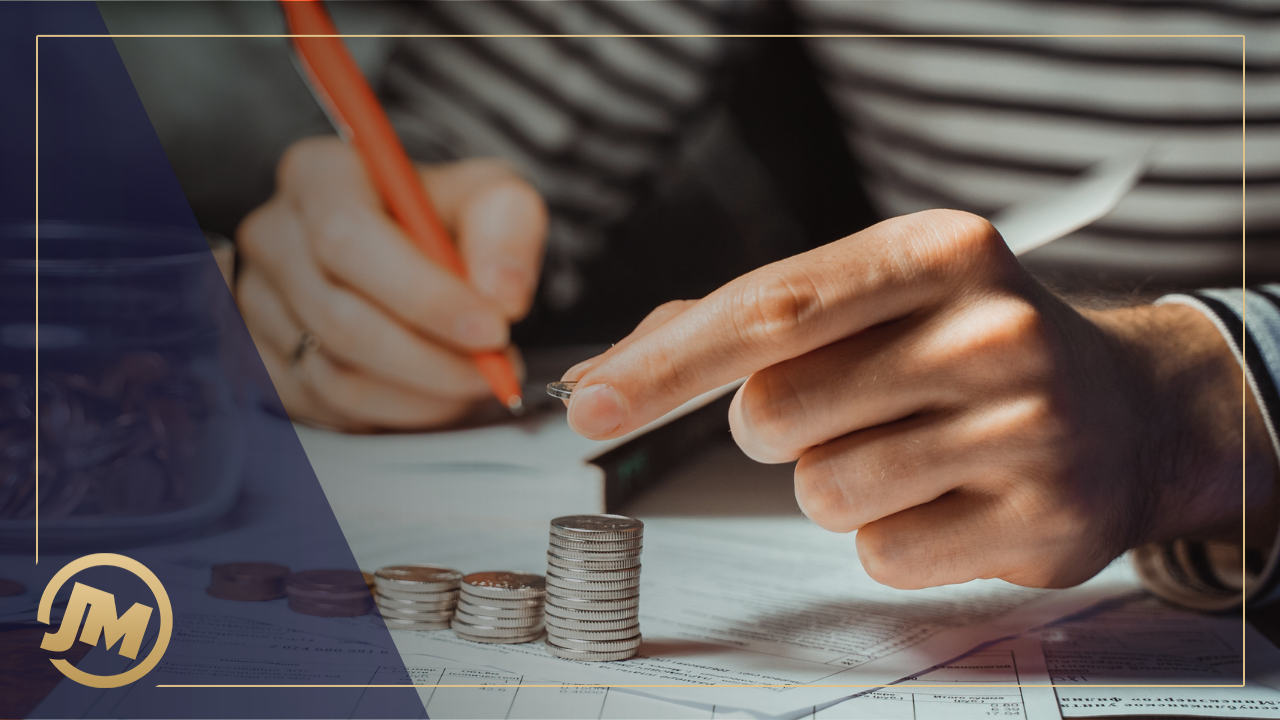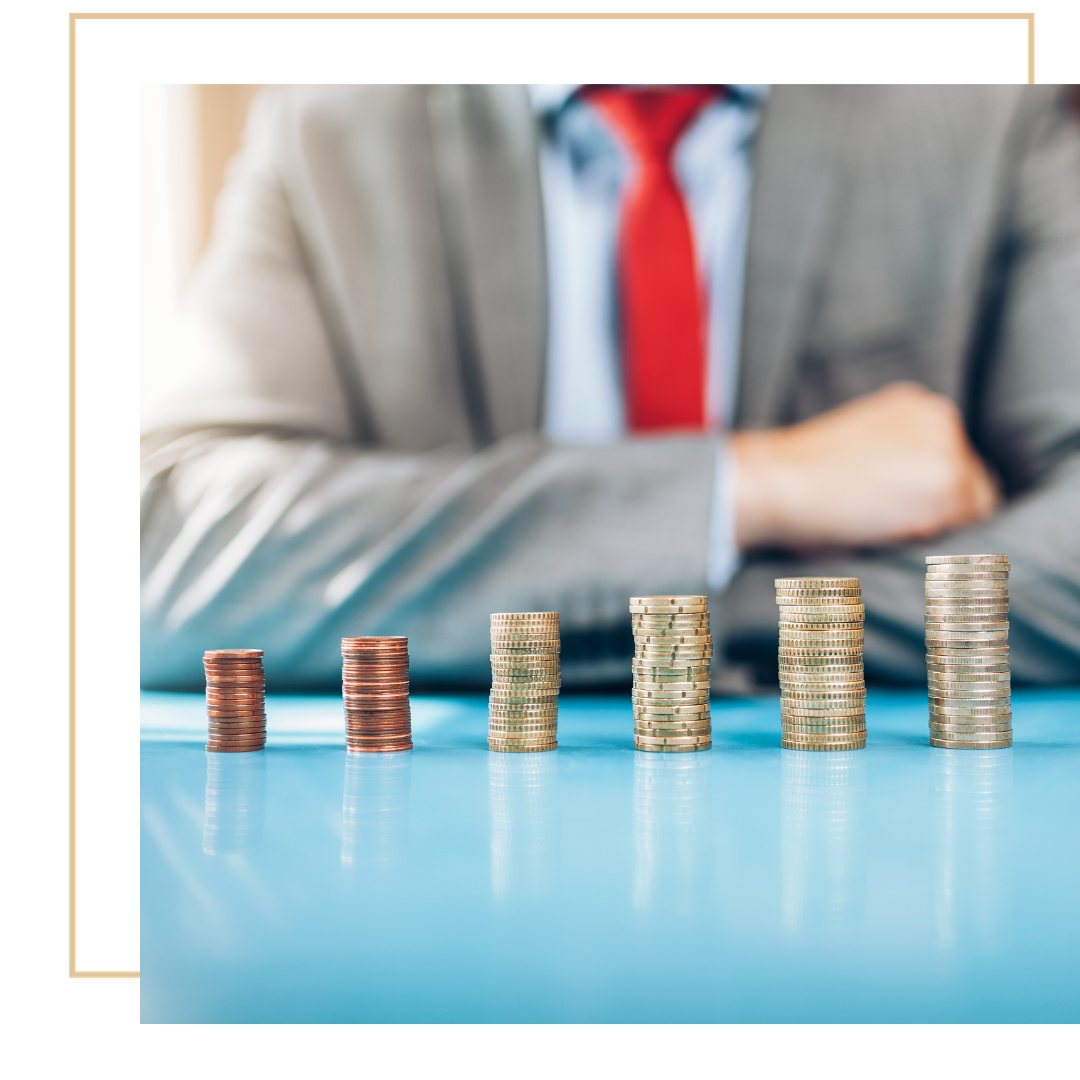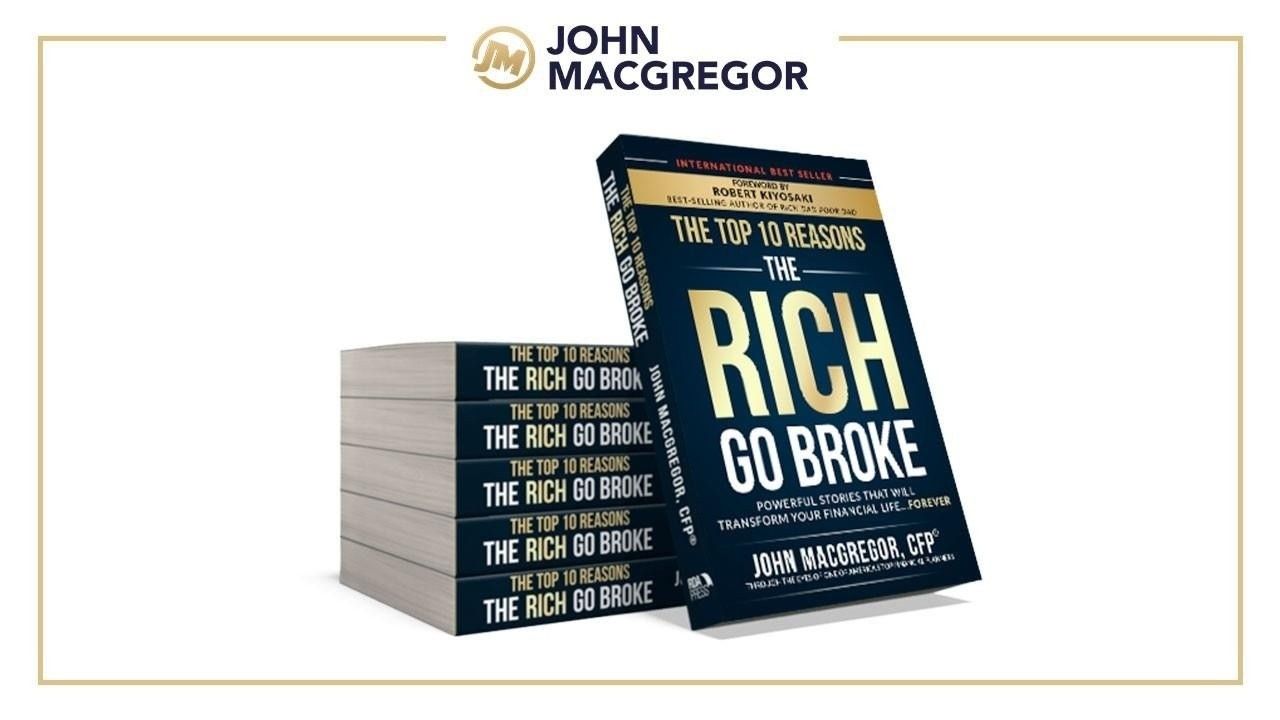The Greatest Threat to Your Wallet Part 3
Jun 14, 2021
Welcome to another blog post of Your Money Mindset guiding you to achieve lasting financial freedom and peace of mind. I'm John MacGregor. It's another beautiful day here in Hawaii on the Gold Coast of Diamond Head.
It's so nice to be back on the islands and very cool to be less than a mile from where I grew up. There's just something extremely special about this place.
This is part three of the greatest threat to your wallet and this is the solution episode. In  the previous blogs, we discussed the financial condition of this country and the extraordinary amount of money this country is borrowing and fabricating out of thin air. We discussed the implications this will have on everyone, and also the current tax plan and how ineffective and destructive it will be on this country. So please read them, the information and the context are extremely important to you, especially for this third part. If you don't go through those first two posts, you're doing yourself a huge disfavor because you must understand what's happening now and what will happen in the future, because it will further your desire to make serious changes in your life, serious changes that you need to make now. In this post, I want to address solutions.
the previous blogs, we discussed the financial condition of this country and the extraordinary amount of money this country is borrowing and fabricating out of thin air. We discussed the implications this will have on everyone, and also the current tax plan and how ineffective and destructive it will be on this country. So please read them, the information and the context are extremely important to you, especially for this third part. If you don't go through those first two posts, you're doing yourself a huge disfavor because you must understand what's happening now and what will happen in the future, because it will further your desire to make serious changes in your life, serious changes that you need to make now. In this post, I want to address solutions.
In other words, things that you can do to, what I say, is the Three P's: Prepare, Protect and even Prosper during such periods because there are always opportunities, no matter what's happening and no matter how bad our politicians are trying to frankly screw us. The first thing you must do is get organized. There is a huge correlation between financial disorganization and financial devastation. I've seen it for the past 25 years in working with people. Too many people I meet come to me with what I call a junk drawer of financial statements, documents, contracts, agreements, policies, and paperwork, and most of the time, much of the information I need to assist is missing. Can you relate to that?
All right, not to put you on the spot. You must be organized if you want to survive and thrive. I've got a free document on my website that will help you do this very effectively.
Okay, secondly, you must know where every dollar is going. That's right: You need a budget. Sorry to say that, but it's imperative if you don't, I guarantee that you're throwing money away needlessly and it's going to hurt you long term. You must go through every expense weekly or worst case, monthly, and ask yourself if this is a need or a want and if your wants far exceed your needs or come close, then you have a problem that must be addressed and I want you to go through each of these expenses to see if you really did need it. If your answer is, yes, my wants do outweigh my needs, then you need to think, is there a more economical way to get the same thing? I'm not saying cut the fun out of your life. All I'm saying, is there a better and more economical way to do the same thing or to get the same thing? Go through each expense and see if you can cut them down or out altogether. You may be paying way too much for your cell phone, cable service, car insurance. I mean, there are so many things we simply purchase or sign up for, and for years we never go back to see if we can lower them, you know, renegotiate or even find a different provider altogether. I know a lot of people who have terrible life insurance policies that they feed every month or every year unnecessarily or they insure their kids, which is normally in most cases, not a wise financial decision.
I guarantee you there's likely money you're spending unnecessarily, perhaps a lot of money. Ideally, and something you should be shooting for is what we call a 50 30 20 budget. The 50 30 20 budget rule is this: 50% goes towards your needs, 30% goes towards your wants, and 20% towards your long-term savings. That savings bucket as I call it must be done automatically, meaning as soon as your paycheck hits your bank account, the predetermined savings amount is automatically swept into your saving and investing accounts. You do not want to write a check into that account every two weeks or every month. However you do it, it simply won't happen.
Next, it's time to really start putting money away, I mean away for the long term. This is no joke folks. It's time now to get serious. Silly question, I know: Do you want to be a
millionaire? Probably a dumb question. Here are some numbers for you. If you were to put away $10,000 for 30 years at a 7% rate of return, you'll end up with a million dollars. That's just over $800 per month. if you put away $15,000 for the same time period at a 7% rate of return, you'll have almost over $1.6 million in 30 years. And this includes money in your company retirement plan. But that shouldn't be your only retirement vehicle. You need to be putting away money outside of your retirement account as well. You may be thinking, John, how am I going to get a 7% annual rate of return? Well, frankly, you should be doing better than that. I'm actually just using conservative numbers here and let me explain where that comes from. The average return in the stock market is 10%. Now, that does not mean 10% every single year. What that means is the market is up 15% 1 year, negative 3% the next, up eight, down one, its vault, right, it goes up and down. But over time when you average it out, the stock market has had an average return of approximately 10% over time going back over the last 100 years; and that's regardless of what's happened in world history.
I mean, we've seen world wars, we've seen terrorist attacks, oil embargoes,  assassinations, hyperinflation, credit crisis, crises, housing meltdowns, the tech bubble. I mean, you name it the stock market takes a hit, sometimes a big hit, and then keeps coming back. I mean, many of you may not even remember, but the great crash of 1987 where the market fell over 22% in one day. In the end, the S and P were up 5% for the year. Yes. Even with that big crash, it was up for the year. The recent housing crisis of 2007, 2008, with a market crash, we went into this horrible recession. You fast forward to today and the market has done extremely well to this recording. I mean, I haven't looked at the numbers, but if I had to guess it's more than tripled since that huge drop in 07 and 08.
assassinations, hyperinflation, credit crisis, crises, housing meltdowns, the tech bubble. I mean, you name it the stock market takes a hit, sometimes a big hit, and then keeps coming back. I mean, many of you may not even remember, but the great crash of 1987 where the market fell over 22% in one day. In the end, the S and P were up 5% for the year. Yes. Even with that big crash, it was up for the year. The recent housing crisis of 2007, 2008, with a market crash, we went into this horrible recession. You fast forward to today and the market has done extremely well to this recording. I mean, I haven't looked at the numbers, but if I had to guess it's more than tripled since that huge drop in 07 and 08.
So forget about the noise and please don't be the one who says investing is too risky. That's just another harmful belief you are carrying around with you and it's likely turned into an excuse to do nothing. Look, crossing the street is risky, right? Driving your car is risky, and yes, investing has risks, but that should not deter you. Otherwise, that belief, that destructive belief that you're holding onto can and will cause a lot of problems for you down the road.
Now, I will say, if you're in your mid to late fifties or sixties or even older and retirement is quickly approaching or you're in retirement, then you need to be a little more careful. Time is not on your side. You still need money in the market, but perhaps not 100%. Look, bottom line, you need to start putting money away now and as much as you possibly can, regardless of your age and ideally, $1000 a month or more. That should be your goal. And I want you to keep at least three months of your salary in a savings account for emergency expenses in case you lose your job, and then the rest you invest, and please, please make sure you're maximizing your 401k or retirement plan contributions at work. But even more importantly, make sure that money is invested. Too many people put money in their retirement plan at work but they don't allocate it into the investments. That's a huge mistake. I would also look at a Roth IRA on top of your 401k contributions. I love Roth IRAs, but the problem is there are contribution limits, you can contribute much less into a Roth than you can a traditional 401k or 403(b) or 457. One idea is to contribute to your 401k up to your employer match limit and then put the remainder into a Roth IRA.
So how are you going to come up with $1000 per month when you're barely squeaking by?  Well, the first thing you need to do is ask yourself, why are you squeaking by in the first place? Are you not making enough or are you spending too much? Or perhaps it's both. We already talked about the budget side of things and what you need to do there. So perhaps it's time to start looking for additional income through a side hustle or a business. Today it is so easy to start a business on your own. I mean there are millions of ways to earn extra income: Uber, Lyft, food delivery, dog sitting, Amazon, Shopify, you can teach an online course. I mean the list is endless, especially today. There is no question, you can develop a side hustle to come up with the extra $1000 per month you need to put away for your future. Look, we already talked about your taxes going up, that's inevitable.
Well, the first thing you need to do is ask yourself, why are you squeaking by in the first place? Are you not making enough or are you spending too much? Or perhaps it's both. We already talked about the budget side of things and what you need to do there. So perhaps it's time to start looking for additional income through a side hustle or a business. Today it is so easy to start a business on your own. I mean there are millions of ways to earn extra income: Uber, Lyft, food delivery, dog sitting, Amazon, Shopify, you can teach an online course. I mean the list is endless, especially today. There is no question, you can develop a side hustle to come up with the extra $1000 per month you need to put away for your future. Look, we already talked about your taxes going up, that's inevitable.
Owning your own business is a terrific way to lower your tax burden. In fact, here's an idea. I would encourage you to read my very good friend Tom Wheelwright's book 'Tax Free Wealth'. He'll show you precisely how to lower your tax bill. It's a great read, it's an easy read and it's extremely informative. When I say easy, it's written in English, so you can understand it. Lastly, investing. If you believe we are headed for higher taxes, the printing of a lot of fake money, more government borrowing and you believe that as a result, we may go through a period of hyperinflation, then there are specific areas you can look at for investing. I can't give you specific recommendations, but here are a few areas that have done well under that scenario: commodities like gold and silver and other precious metals or even agricultural commodities. Another way to play that area is the commodity providers such as the miners, companies that pull the gold out of the ground and you can buy this stuff several ways, you can buy the actual metal itself or you could by using an exchange-traded or even a mutual fund. You can also invest in commodity-focused companies. In terms of different areas to look at during these times, there are a variety of sectors and industries that do well in a hyper-inflation kind of environment. These include banking stocks, consumer staples, I mean, these are companies that produce basic goods you buy in the store, utilities, material stocks, these are companies that produce raw materials and health care stocks also tended to do well as well. And right now I also like the smaller and the mid-sized companies. Bottom line is, don't let all this noise deter you or even scare you. You need to get in the game and understand what is happening at a macro level and then decide what you're going to do about it. There are always ways to prepare, protect and prosper.
Remember the Three P's as I refer to them. Like I said, and I always say, it is never too late to start your journey to financial freedom and peace of mind. Your destiny is not a matter of chance. It's a matter of choice. It's your choice and it's not something to wait for. It's something for you to go out and get. Now is the time.
I've got a lot of free resources you can take from my website that will help you get started on your journey to financial freedom and peace of mind right away.
I would love your thoughts and your ideas and what you think about what's going on in the economy and what you think of what's going to happen with taxes or inflation, please.
From that, I'll see you next time upward and onward. Aloha, take care.
John MacGregor is an international best-selling author, global speaker, and financial mentor to thousands of people worldwide. For over 26 years John has been assisting individuals with their personal financial needs using paradigm shifting techniques and strategies so people can finally live the life they deserve to live. Check out John's website for a variety of free resources so you can immediately start your journey to financial freedom and peace of mind.



